
The Online Certificate Course on Antimicrobial Stewardship and Infection Prevention and Control is developed by Amrita Institute of Medical Sciences in Faridabad, Haryana, and is available on the Amrita AHEAD platform. This comprehensive course is designed to provide healthcare professionals with the latest evidence-based knowledge on Antimicrobial Stewardship (AMS) and Infection Prevention and Control (IPC).
The program consists of two modules: the Basic Module for medical, pharmacy, and nursing students, as well as healthcare professionals in primary and secondary care, and the Advanced Module for healthcare professionals in tertiary care hospitals. The course combines theoretical learning with practical strategies for implementation in healthcare settings, particularly in low- and middle-income countries, and is aimed at improving patient safety and healthcare outcomes.
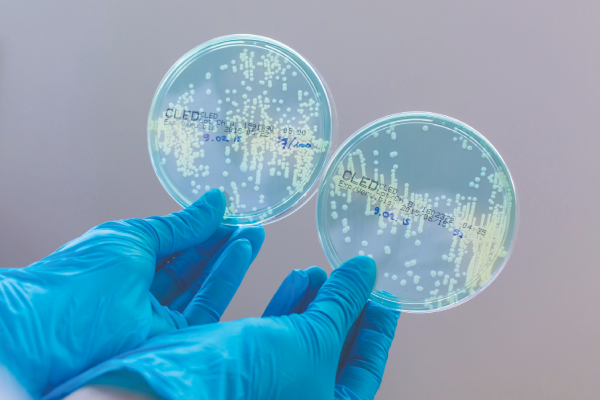

Amrita Vishwa Vidyapeetham has not appointed any Agent or Third-Party Client for securing admission in any programme. Students are hereby requested to contact only the toll-free number on our website for any admission related queries.
– Issued in Public Interest by Directorate of Admissions and Academic Outreach

Basic Module:
Advanced Module:
Basic Course:
Advanced Course:
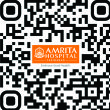

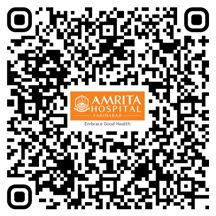

The course includes key national and international experts who would cover basics of microbiology, pharmacology, infectious diseases management, Antimicrobial Stewardship (AMS) and Infection Prevention & Control (IPC) practices. Sessions would be conducted virtually and registered participants will have the opportunity to receive one week hands-on- training at Amrita Hospital, Faridabad, Haryana
Course Fee : INR 2500

Appropriate selection of antibiotics based on phenotypic and molecular diagnostics
Dr. Sumit Rai
Professor and Head, Dept. of Clinical Microbiology & Infectious Diseases, All India Institute of Medical Sciences, Mangalagiri, Andhra Pradesh

Anti-Fungal Stewardship
Dr. Aruna Poojary
Laboratory Director, Incharge – IPC, Dept. of Pathology & Mirobiology, Breach Candy Hospital, Mumbai

Preparation of antibiogram and antibiotic policy
Dr. Anita Sharma
Director, Department of Lab Medicine, Fortis Hospital, Mohali

Diganostic Stewardship
Dr. Sharmila Sengupta
Associate Professor, Dept. of Microbiology, Amrita School of Medicine, Faridabad.

Pharmacokinetic – Pharmacodynamic Considerations for Optimized Dosing of Antimicrobials
Dr. Avaneesh Kumar Pandey
Senior Researcher, CAMO – Net (India Hub), PGIMER, Chandigarh

Pharmacokinetic – Pharmacodynamic Considerations for Optimized Dosing of Antimicrobials
Dr. Rikita Kondel Bhanderi
Post Doctoral Researcher, CAMO – Net (India Hub) PGIMER, Chandigrah

Pharmacokinetics – Pharmacodynamics, Consideration for Optimized Dosing of Anrimicrobials
Dr. Nusrat Shafiq
Clinical Pharmacology unit, Dept. of Pharmacology, PGIMER, Chandigrah

Comprehensive Strategic Approach to Antimicrobial Stewardship
Dr. Twisha Patel
PharmD, BCIDP, Public Health, USA

Comprehensive Strategic Approach to Antimicrobial Stewardship
Dr. Payal Patel
Infectious Disease Physician, Associate Professor, Medical Director of Antimicrobial Stewardship, Intermountain Health, USA
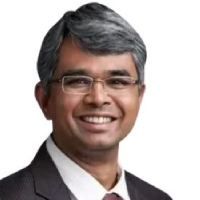
Antimicobial Stewardship in Special Settings – Based on Case Scenarios
Dr. Anup Warrier
Consultant, Department of Infectious Diesease & Hospital Infection Control, Aster Medicity Hospital, Kochi.

Anti–tubercular Stewardship (Interview)
Dr. Camilla Rodrigues
Consultant Microbiologist, Chair person Infection Control committee, Head of Department of Lab Medicine, P. D. Hinduja Hospital & Medical research Center

Clinical Decision Support System for Antimicrobial Prescribing
Dr. Nathan Peiffer Smadja
Associate Professor, Dept. of Infectious Disease & Tropical Medicine, Bichat Claude Bernard Hospital, Ap-HP

Role of Patients and the Public in Antimicrobial Stewardship and Infection Prevention Control
Dr. Oluchi Mbamalu
Senior Lecturer, University of Cape Town

Role of Social Science in Antimicrobial Stewardship and infection Prevention and Control (Discussion)
Dr. Candice Bonaconsa
Research Officer, University of Cape Town

Role of Social Science in Antimicrobial Stewardship and Infection Prevention and Control (Discussion)
Dr. Vrinda Nampoothiri
Post Doctoral researcher, Amrita Institute of Medical Sciences and Research Center, India

Role of Social Sciences in Antimicrobial Stewardship and Infection Prevention and Control (Discussion)
Dr. Esmita Charani
Associate Professor, University of Cape Town

Implemention Science
Dr. Raheelah Ahmed
Associate Professor, St. Georges, University of london

Advanced Infesction Prevention and Control : Implementation of improvement Science
Dr. Daniel Vanderendale
Medical Officer, DC

Economic evaluation in infection prevention and control and antimicrobial stewardship
Dr. Nina Zhu
Research Fellow, Centre for Antimicrobial Optimisation, Imperial College, London

How to create and present a data dashboard
Dr. Bernard Hemandez
Post Doctoral Research Fellow, Imperial College, London

Health Economis and AMR
Dr. Elly Nuwamanya
Research Health Economist, IDI, Uganda

The One Health Approach
Prof. Anna S. Levin
Professor, University of Sao Paulo. Brazil
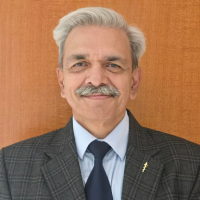
Dr. Ashutosh Sharma
Medical Superintendent, Amrita Hospital, Faridabad

Dr. Prem Nair
Group Medical Director, Amrita Hospitals

Swami Nijamritananda Puri
Administrative Director, Amrita Hospital, Faridabad

Dr. Sanjeev K. Singh
Medical Director, Amrita Institute of Medical Sciences, Faridabad, Haryana
Course Director

Dr. Sathyanarayana Reddy B.
Clinical Pharmacist, Amrita Institute of Medical Sciences, Faridabad, Haryana, India
Cheif Course Co-Ordinator

Dr. Vrinda Nampoothiri
Post Doctoral Researcher, Amrita Institute of Medical Science Faridabad, Haryana, India

Dr. Kusum Rani
Post Dotoral Researcher
Amrita Institute of Medical Sciences Faridabad, Haryana, India

Dr. Arya S. Kumar
Project Scientist – III
Amrita Institute of Medical Sciences Kochi, Kerala, India

Ms. Fabia Edathadathil
Quantitative Researcher
Amrita Institute of Medical Sciences Kochi, Kerala, India

Dr. Meera Susan John
Clinical Pharmacist
Amrita Institute of Medical Sciences Kochi, Kerala, India

Dr. Sherya H
Clinical Pharmacist
Amrita Institute of Medical Sciences Kochi, Kerala, India

Dr. Aleena Issac
Senior Research Fellow
Amrita Institute of Medical Sciences Faridabad, Haryana, India
Basic Course:
Advanced Course:
Basic Course:
Participants will:
Advanced Course:
Participants will:
| 25AMIP101A Antimicrobial Stewardship and Infection Prevention and Control-Basic CourseP/F | |
| Topic | Speakers |
|---|---|
| Introduction to the course | Alison Holmes, Professor in Infectious Diseases, Imperial College London, UK |
| Basics of Microbiology | Dr. Meher Rizvi,Associate Professor, Department of Microbiology and Immunology, Sultan Qaboos University, Oman |
| Interpretation of Laboratory data | Dr. Anilkumar, Professor, Department of Microbiology, Amrita Hospital, Kochi, Kerala |
Introduction to Pharmacology ( Part I) Kinetics
|
Dr. Grace Mary John, Infectious Diseases Clinical Specialist and Chief Clinical Pharmacist at Believers Church Medical College Hospital , Thiruvalla, Kerala |
Introduction to Pharmacology ( Part II) Dynamics
|
Dr. Subrajyoti Bhowmik,Associate Professor of Pharmacology at KPC Medical College, Kolkata |
Introduction to AMR( causes and spread -one health concept & burden)
|
Dr. Kiranjeet Kaur,Assistant Professor, Chitkara University, Patiala |
| How to develop and implement a one health approach to AMR | Prof. Karin Thursky Director of the National Centre for Antimicrobial Stewardship (NCAS), Australia |
Strategies to prevent and control (policies, GAP, NAP)
|
Dr. Marc Mendelson, Professor, Department of Infectious Diseases, University of Cape Town, South Africa |
| Introduction to AMSP | Dr. Zubair Umer Mohammed, Associate Professor, Anesthesiology and Critical Care, Amrita Hospital, Kochi, Kerala |
| Principles of AMSP with examples | Dr. Priscilla Rupali, Sr. Professor & Head of the Department of Infectious Diseases at Christian Medical College Vellore |
| Importance of multidisciplinary AMS team and how to create a team based on available resources | Dr. Kamini Walia, Senior Scientist, Indian Council of Medical Research &DrPayal Patel,Systemwide Medical Director of Antimicrobial Stewardship at Intermountain Health, USA |
AMS strategies
|
Dr. Mohammed Hisham, Lead Clinical Pharmacist at Cleveland Clinic Abu Dhabi |
| Common clinical indication – 2 focus (session I) – URTI & LRTI , Sepsis | Dr. Ram Subrahmaniam, Infectious Disease specialist, Apollo Hospitals Chennai, Tamil Nadu |
| Common clinical indication – 2 focus (Session II) – Intra abdominal , CNS, Bacteremia | Carlos Palos,physician in Intensive Medicine and Internal Medicine and coordinator of the group of infection control and resistance to antimicrobials of Luz Saúde and Hospital Beatriz Ângelo, Portugal |
| Common clinical indication – 2 focus (Session III) – Skin and Soft tissue, Bone and Joint infections | DrSubrahmaniamSwaminathan, Director of Infectious Diseases at the Gleneagles Global Hospita, Chennai, Tamil Nadu |
| Common clinical indication – 2 focus (Session IV) – Urinary tract infections, Infective Endocarditis | DrTanusinghal,Consultant, Paediatrics and Infectious Disease, KokilabenDhirubhaiAmbani Hospital, Mumbai, Maharashtra, India |
Surgical prophylaxis
|
DrPuneetDhar, Head, Gastrointestinal Surgery, Amrita Hospital, Faridabad, Haryana |
How to do surveillance of HAI and reporting
|
DrPurvaMathur, Professor, All India Institute of Medical Sciences, New Delhi |
Standard precautions
|
Dr Arya S Kumar, Project Scientist, Amrita Hospital, Kochi, Kerala |
Transmission based precautions, outbreak management
|
DrPoornima B, Assistant Professor at the Department of Microbiology, Amrita Hosptial, Kochi, Kerala |
| Data reporting and analytics (AMSP and IPC) Types of metrices Surveillance metrices-structural, process, consumption AMR metrices- regulatory requirements | Ms Fabia ET, Quantitative Researcher, Amrita Hospital, Kochi, Kerala |
| 25AMIP111A Antimicrobial Stewardship and Infection Prevention and Control-Advance course P/F | |
| Introduction to advanced MOOC | Alison Holmes, Professor in Infectious Diseases, Imperial College London, UK |
Preparation of antibiogram and antibiotic policy
|
Dr. Anita Sharma, Fortis Mohali |
Diagnostic Stewardship
|
Dr. Sharmila Sengupta, Senior Consultant, Department of Microbiology, Amrita Hospital, Faridabad |
| Appropriate selection of antibiotics based on phenotypic and molecular diagnostics | Dr. Balaji, Professor, Department of Clinical Microbiology, CMC Vellor |
PK/PD
|
Nusrat Shafiq, Professor, Department of Pharmacology at the Postgraduate Institute of Medical Education and Research, Chandigarh, India |
Comprehensive strategic approach to ASP
|
Dr. Twisha Patel, CDC, USA &DrPayal Patel, System wide Medical Director of Antimicrobial Stewardship at Intermountain Health, USA |
AMS in special setting – based on case scenarios
|
Dr. AnupWarrier, Senior Consultant – Infectious Diseases, Aster Medcity, Kochi, Kerala |
Antifungal Stewardship
|
Arunaloke Chakrabarti Professor, Postgraduate Institute of Medical Education and Research, Chandigarh |
| Antitubercular Stewardship | Dr. Camilla Rodrigues, Senior consultant microbiologist and the Chair of the Infection Control Committee, P.D. Hinduja Hospital, Mumbai, Maharashtra |
Application of IT in ASP E.g Role of CDSS in ASP
|
Dr. Nathan PeifferSmadja, Honorary Clinical Research Fellow Department of Infectious Disease, Imperial College London, UK |
Role of patient and public in ASP and IPC
|
Dr. Oluch iMbamalu, Senior Lecturer in the Global Surgery Division, University of Cape Town, South Africa |
Understanding of site context and the role of social science in AMS and IPC
|
Dr. EsmitaCharani, Associate Professor, University of Cape Town, South Africa; Ms Candice Bonaconsa, Nurse Researcher and PhD candidate, University of Cape Town, South Africa |
Implementation science
|
Dr. Raheelah Ahmed, Reader, University of London, UK |
| Advanced IPC – Implementation of improvement science | Dr. Daniel Vanderende, Medical Officer at CDC, USA |
| how to incorporate AMS and IPC to hospital costing models | Nina Zhu, Research Lead for Population Health and Policy, Imperial College London, UK |
| How to create a present a data dashboard | Bernard Hernandez, post-doctoral research associate at the Centre for Bio-Inspired Technology at Imperial College London. |
The top reasons to choose Amrita for your career

